If there is someone you would like to add to the list, please email us directly. Please see our shortlist below!

Charlotte Guzzo, Patrick Short & William Jones – Sano Genetics
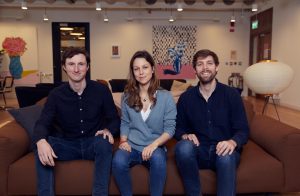
The three co-founders of Sano Genetics met at the University of Cambridge’s Wellcome Sanger Institute in 2015, where they were all studying postgraduate genomics.
Charlotte Guzzo was looking into the embryonic origins of childhood cancer, having previously spent a year as a risk analyst at JP Morgan. Patrick Short’s research was in the field of mathematical genomics and medicine: he focused on discovering gene mutations in developmental disorders. And William Jones’s research combined computational biology, genetics, computer vision, statistics and deep learning.
Whilst there, all three had noticed finding and retaining participants for research was very difficult, and the poor experience for those taking part did nothing to help matters. Together, they came up with an idea for a startup that would solve these problems: a technology-first matchmaking service with an emphasis on the patient experience.
They created a minimum viable product for the Cambridge University Entrepreneurs competition, which they won. The business was incorporated in 2017 and the trio continued to work on the company during evenings and weekends while Patrick finished his PhD. To date, Sano Genetics has raised £3M in pre-seed and seed funding rounds, plus four grants from Innovate UK totalling £880,000.
Today their healthtech startup is helping patients with rare and chronic diseases – including Long COVID, multiple sclerosis and Parkinson’s – take part in personalised medicine research and clinical trials. They find participants, provide them with ‘at home’ DNA testing kits, and guide them through the process, giving them total control over how their data is used. They keep people engaged and informed with regular updates on the research they have been a part of, and via personalised content such as genetic reports.
Felix Ohswald – GoStudent
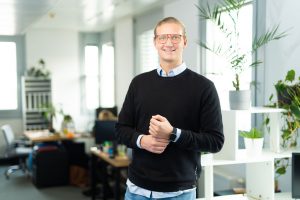
Felix Ohswald is the Co-Founder and CEO of GoStudent, the Vienna-headquartered digital learning platform providing tailored, high quality video-based tuition to primary, secondary and college-aged students. In June 2021, GoStudent became Europe’s first EdTech unicorn.
First conceived in 2015, the company started out as a homework chat service. Felix, aged 21 at the time, was completing his Masters degree in Quantitative Finance at ETH Zurich. His younger brother, Moritz, was also studying, and began referring his classmates to Felix for support with their maths homework. Given his expertise, Felix quickly became the go-to expert for Moritz’s whole year group, who would regularly text him when struggling or confused.
Felix was surprised by the volume of messages he was receiving, and concerned by the fact that there appeared to be a distinct lack of support for these students. He resolved to address this issue, keen to inspire in them a passion for learning that matched his own, and to find a solution to a fundamental and global problem: access to top teachers. It was with this in mind that Felix reached out to his friend Gregor Müller, GoStudent’s Co-Founder and COO, and proposed that they build a dedicated homework support app, where users could be connected with motivated and inspiring tutors. GoStudent was subsequently founded in 2016, with the app launching that summer. Since, GoStudent has expanded to 22 countries, and raised more than €291m.
Felix was able to draw on his wealth of academic experience when developing the company. Prior to co-founding GoStudent, he studied at a number of prestigious universities. At the age of 14, Felix embarked upon a Mathematics degree at the University of Vienna. This was undertaken whilst he continued with his wider school studies. Felix then went on to complete a further degree in Mathematics at the University of Cambridge, graduating in 2014.
Joe Shalom – Houseflow

FinTech startup ‘Houseflow’ simplifies tenant living – and property management – by managing utility bills in one single place.
They leverage smart technology and a supplier-agnostic business model to provide one discounted bill across electricity, gas, water, broadband and more – saving time, money and headaches. Functionality includes bill-splitting between housemates whilst moving homes is a breeze with just one point of contact. With Houseflow you’d never have to speak to a utility provider again.
Bootstrapped by Joe Shalom at the start of 2021 this start-up has already shown its potential having surpassed 6-figure annualised income.
Joe Shalom, founder of Houseflow said: “I founded Houseflow to provide a solution for the often confusing and painful world of utility bills. I have always been fascinated by the industry and first became involved during a gap year in Australia going door-to-door with the latest energy advice and contracts. When engaging with the UK property market I saw that there had been little progression in utility providers and technology. There was still an opportunity for better methods of billing.”
“It’s great to be given the opportunity to be part of the Exchange programme at Enterprise City. Houseflow’s offering is very much community focused and I want to embody this in our culture. To be around other tech start-ups that face similar difficulties and can share learnings is a great space for me and my brand.”
If there is someone you would like to add to the list, please email us directly.

Clare Grey – Nyobolt
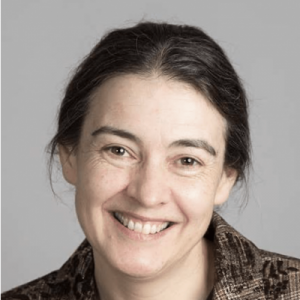
Founded in 2019, Nyobolt was developed out of years of research at the University of Cambridge, led by Sai Shivareddy and world-renowned battery-materials expert, Professor Clare Grey, an award-winning Cambridge University chemist and founding member of the Faraday Institution – the UK’s flagship battery research programme.
Accelerated by increasing demand, the battery industry has become more dynamic and competitive than ever, particularly in terms of obtaining partners and talent. Despite this, Nyobolt have excelled in growing across additional industry sectors. Over the last year, Nyobolt has hired some of the leading minds in battery technology and energy storage including Anna Wise, who prior to joining Nyobolt held the role of Head of Battery Technology at Innovate UK and was responsible for the innovation programme and technical direction of the UK Government’s £330m Faraday Battery Challenge.
Shane Davies, an ex-Mercedes and Ricardo software lead, joined Nyobolt as Engineering Director for Software and Controls, aiming to deliver advanced battery and charging technology into customers’ products. Lastly, Mahesh De Silva, who previously was leading major engineering programmes at Jaguar Land Rover, Teledyne e2v and Biochrom, joined Nyobolt as Engineering Director.
With a clear vision, Nyobolt will bring out an ultra-fast charging lithium-ion battery that can be used in any car, minimising downtime by shortening the recharging period, bringing it in line with a more conventional refuelling timeframe. In addition to charging much faster, Nyobolt batteries have a longer life span than conventional lithium-ion batteries. They do not degrade in extreme temperatures in the same way that conventional lithium-ion batteries do and are much less likely to catch fire.
Since its creation, Nyobolt have raised $10 million in series A funding to build pilot facilities and grow engineering and application capabilities. Fundraising continues to build up production and prototyping facilities to achieve the long-term goal of meeting demand from high power vehicles, industrial automation, and tools and appliances.
Rohan Kamdar – Meshed
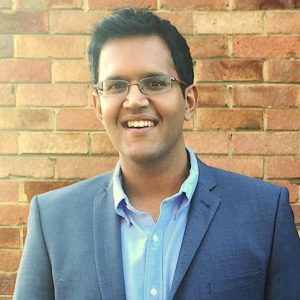
Rohan is a graduate from the University of Cambridge who was originally the founder & CEO of Effie, which manufactured a robot that can iron clothes. The startup’s product was capable of handling 12 clothes at once – enabling customers to remove the wrinkles from their shirts at the touch of a button. The IP and technology was sold to BSH last year.
The Cambridge masters graduate is currently the founder of Meshed, a personalised massage device that you can control from your smartphone. With over 8 million adults in the UK suffering from chronic back pain, and numbers only growing with so many people now working from home, the team knew they could do something to help, and Meshed was born.
The idea behind it was simple – “if you as a user could design the perfect massage solution, what would you want it to do?”, with the answer being “everything a professional does when I go and get a massage.” Controlled via a mobile app in the palm of your hand, Meshed is the at-home, on-demand massage device for total comfort.
Delivering high-tech personal massage, Meshed combines superior engineering skills from graduates from some of the best universities in the world and sleek design for ultimate at-home on-demand comfort. With its sleek design and partnership with London School of Massage, this foldable device uses 3D-axis motion for adjustable depth, pressure, and shape, with interchangeable 5-head rods.
Rohan’s Meshed team is built up of engineers and designers with diverse backgrounds in product research and development. They have designed a combined total of over 75 products over the past 20 years. With anything from ion thrusters and blood analysers, to furniture collections and medical cases.
The Meshed team is certain that they are creating something that will truly help others, as well as bringing much-needed innovation to a market that has been stagnant for years. Rohan and his team at Meshed have just started their funding rounds and they are looking forward to a bright future and helping people with their massage chair.
Dr. Liz Zijing Li – MimiCrete Ltd

Infrastructure is the backbone of our modern society, enabling trade, powering businesses, and protecting cities from an increasingly unpredictable natural environment. For infrastructure themselves, the fact is, they all crack, no matter how carefully being stored or reinforced. Government must maintain or replace critical infrastructure: dams, bridges, roads, and tunnels, regularly and at great expense. In the UK alone we spend over 40 billion pounds every year maintaining and replacing damaged structures.
Can buildings “magically” heal the cracks like our skin? Dr, Liz Zijing Li developed a unique way to make this happen. This solution applies 3D printing technology and biomimetic designs to novel self-healing concrete, which mimics the human self-healing system and promises to reduce the costs of concrete production and maintenance. It increases the strength of concrete on day one and more than doubles its lifespan. The need to monitor and maintain infrastructure is reduced, and the extension in lifespan reduces the volume of concrete utilised in the overall built environment, in turn reducing the negative environmental impact of construction itself.
Dr. Liz Zijing Li has now converted this invention into innovation and co-founded MimiCrete Ltd-an advanced materials science start-up developing novel self-healing concrete. She previously studied PhD in Engineering from the University of Cambridge and investigates innovative 3D printed models and fugitive ink manufacturing platforms for vascular self-healing construction materials. Representing the venture, she recently made into the final round of the PHBS-CJBS Global Pitch Competition and won the third prize.
MimiCrete Ltd helps the ‘’world’s most destructive material’’ to become significantly more sustainable and contributes to the global carbon neutral target.
If there is someone you would like to add to the list, please email us directly.

Xavier Parkhouse-Parker – Cambridge Future Tech
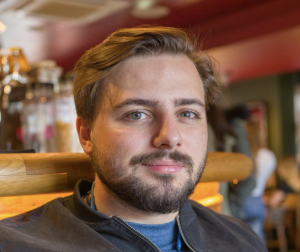
Xavier Parkhouse-Parker is a serial entrepreneur and founder who started his first company at 15 and jumped in full time while pursuing an undergraduate degree. Xavier has led several startups with technologies such as AI, media, marketing and HR tech. Xavier holds a masters from the University of Cambridge. He has been featured in The Guardian, USA Today, Tech Nation and other publications and was one of CVC Capital Partners Young Innovators for 2017 and NACUE’s National Entrepreneur of the year for 2016.
Xavier is currently a Co-founder and COO of Cambridge Future Tech – a Deep Tech Venture Builder. Cambridge Future Tech is a Tech Venture Builder with a vision to help facilitate the next generation of Deep Tech innovation. They work to commercialise scientific discoveries, platform level innovations that fundamentally improve the way the world works.
Xavier has founded a number a number of startups and moved full-time with his ventures when he was an undergraduate. Since then he has started companies with technologies such as AI for use in media, marketing and HR tech. Immediately prior to Cambridge Future Tech, he helped to build a digital marketing company, ZapHub, with their marketing growing rapidly to land 50+ clients in the first 18 months.
He left ZapHub at the beginning of 2020 to focus on technology ventures, with Cambridge Future Tech (CFT) being the perfect company for him. CFT was founded along with colleagues from Cambridge Judge Business school after they repeatedly saw the same challenges faced by DeepTech founders. There is a gap in the support offered to academic founders in-between the University support and investors. CFT joins academic founders, who have developed a new innovative technology, as a co-founder in a business to commercialise that technology. CFT supports all aspects of the commercial running of a DeepTech venture from customer development, to finance and fundraising.
CFT currently has 3 helped to build ventures and following their successful fundraise in 2021, will build between 4-6 new deep tech ventures a year from 2022 onwards. Deep Tech startups have significantly different characteristics to a lot of other technologies and require a lot of diverse support from a very early stage. CFT provides this support and plans to help facilitate the next generation of deep tech ventures. Xavier remains excited to see the amazing companies he’ll build into the future.
Owen Thompson – Oxbridge Watches

Owen Thompson is the founder and MD of DoubleGood Licencing and Oxbridge Watches – a boutique licensing agency with a focus on ESG and Luxury Brands. Owen gained over a decade of leadership experience as a Commissioned Officer and Fighter Pilot in the Royal Air Force, gaining experience in global Defence Engagement and Diplomacy, culminating in a high-pressure leadership role as a Squadron Leader on a front-line Eurofighter Typhoon squadron and an MA in International Relations from King’s College London.
Owen subsequently transitioned into business, creating and running two start-up businesses in his first two years out of the military, while acting as a Senior Advisor to BAE Systems. Owen has recent experience of conducting a successful Cambridge-based fundraising round as well as effective B2B licensing and legal contract negotiations on a national scale, start-up team-building, management & leadership, IP protection, and many other facets of early-stage business growth.
Qualified as an RAF Electronic Systems Instructor, Owen is familiar with high-tech systems and is well-positioned to advise on specialist technical queries, as well as start-up business growth and leadership across a multitude of sectors. Owen recently completed the Masters in Entrepreneurship from Cambridge, going on to work as a mentor for the CJBS Venture Creation Weekends and an Academic Supervisor for EnterpriseTECH, as well as a mentor for The Office for Postdoctoral Affairs and The Prince’s Trust. Owen currently focuses his time on managing Cambridge Future Tech, and coordinating the growth strategy for Doublegood Licensing.
During the first week of his masters degree he stumbled upon the idea of Oxbridge Watches after several coursemates asked if there was a Cambridge equivalent to the RAF Breitling watch he was wearing, with the aircraft type embossed on the face.
Oxbridge Watches became a great fast-paced entrepreneurial challenge since the company raised an unexpected angel investment round very quickly; this actually came from a demonstration pitch given in support of a lecture for the CJBS Executive MBA course. He quickly obtained branding licences from both the University of Cambridge and the University of Oxford, as well as a manufacturing contract with a large luxury watch manufacturer. This was a large job for one person and he hired a number of interns as well as one of his classmates from my masters degree to come and run the sales and marketing efforts of Oxbridge Watches.
Since then they have also brokered and underwritten a significant time-piece sponsorship deal between Bremont Watches and England Rugby (the RFU) in return for commission on watch all sales. Oxbridge Watches was growing rapidly into an exciting venture. They have now turned the company into a licencing agency, DoubleGood, which works with fundamentally sustainable brands. Quality and longevity are mission-critical to what the team are building at DoubleGood.
Sam Fromson – YuLife

Sam Fromson founded his own business, YuLife, alongside Josh Hart. The startup is growing rapidly after being founded in 2016, and aims to offer affordable life insurance for companies. YyLife offers a large number of wellbeing and health rewards for those employees who do appear to be engaging in healthy activities. Prices start from £4.99 a month, making it an affordable tool for even the smaller companies.
Participants can use the YuLife and earn YuCoin. This is the company’s own currency, and is earned on account of completing wellness tasks. This can include things like walking a certain amount of miles, cycling, jogging and taking part in meditation. Employees and employers alike can then exchange their coins for vouchers or discounts from big brands, including ASOS, EAT and M&S.
The company received an early investment of £11 million and has since run a Series B funding round where they successfully raised investments equating to £50 million. This has enabled YuLife to become one of the fast-growing insurance brands currently in the startup space.
If there is someone you would like to add to the list, please email us directly.

Joe Binder – WOAW

Joe Binder is a former YouTuber and influencer who built his YouTube channel from scratch at the age of 25. Joe successfully gained over 20,000 subscribers and had attracted more than two million views before he decided to change his career path and founded his own company, WOAW. Joe also attained a geography degree from Cambridge University before he became famous on YouTube.
A digital presence has become more important for businesses worldwide since the beginning of the Covid-19 pandemic which forced many companies to close all face to face trading. This has meant that many businesses have had to embrace new marketing styles alongside hybrid working, which looks to become even more prominent in the future with many employees preferring having the opportunity to work from home.
Joe Binder is well aware of the importance of maintaining a digital presence, and his company WOAW helps to build personal brands on social media. This work is available for founders and CEOs alike, including Dragons’ Den stars Tej Lalvani and James Caan CBE.
WOAW was launched in 2018 and offers three main service divisions: high-profile entrepreneurs, leadership teams of high-growth businesses and corporates. While growth in business has been due to the crisis, companies are consistently allocating their spending to creating a digital presence instead of physical events.
Dr Mark Kotter – bit.bio
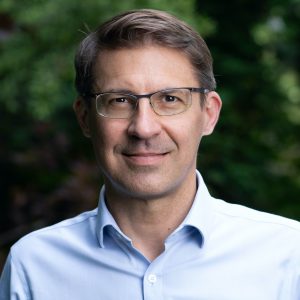
Dr Mark Kotter is the Founder and CEO of stem cell startup bit.bio, based at the Babraham Research Campus just outside Cambridge and in San Francisco.
Mark earned MPhil and PhD degrees studying neural regeneration at the University of Cambridge in the laboratory of Professor Robin Franklin. A few years later he entered the neurosurgery training program and started his own lab at the Stem Cell Institute at the University of Cambridge. This is where he developed the idea for bit.bio’s fundamental technology opti-ox.
His lab needed a consistent supply of a type of human brain cells called oligodendrocytes to conduct his research. Because donor cells were rare, he and his team were investigating whether they could generate neurons in their lab at speed and scale by using a fairly new paradigm in biology: cellular reprogramming. This approach is based on the paradigm that cells are akin to biological computers that can be programmed with a new identity.
The breakthrough with opti-ox is that it can be used to manufacture human cells with consistency at scale. No other approach has been able to achieve this before. When Mark saw the results of an entire culture of stem cells turning into neurons, filmed down the microscope, he couldn’t believe the results were real.
The motivation behind the discovery of opti-ox goes beyond Mark’s work as a researcher: Mark is also a practicing neurosurgeon in the NHS. He believes that the use of human cells to study and develop new treatments will usher in a new era of cures, including cell based therapies that can reverse damage and even treat certain genetic conditions that have no current treatments.
Because it offers this programmed identity in every cell, opti-ox has the potential to produce any human cell type we need at scale, reliably and consistently, and this is key to making certain cell therapies affordable for all.
The ability to manufacture human cells at scale is also crucial for improving pharmaceutical outcomes of new clinical drugs. Being able to test new drugs for conditions like muscular dystrophy or cancer on human cells will increase their likelihood of success and speed up time to clinic rates. The company already has two products that serve this market, under their ioCells brand: neurons and skeletal myocytes More cell types are on the way.
bit.bio was set up in 2016, raised $41.5m in Series A funding in 2019 and $103m in Series B funding in November last year. This funding is set to accelerate the company’s move towards the clinic with its first cell therapies.
Areeb Siddiqui – Kestrl
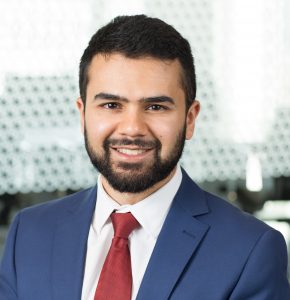
Kestrl: The Muslim Money App (https://kestrl.io/). They’re an app that helps Muslims to grow their wealth without compromising their beliefs.
As founders, a frustration that they have lived with their whole lives has been the inability to bank and invest in line with religious beliefs which entail avoiding interest and other impermissible activities. Existing solutions are too expensive and with a really poor user experience. So they decided to use their backgrounds in strategy, fintech, Islamic banking and tech to solve this problem for themselves and the 3m other people who experience this in the UK alone.
Since launching the app for download on the App Store and Google Play in April 2021, they have launched 4 products, acquired 4000 active users, raised £500k and have just launched their first recurring revenue generating product.
Dr Andrea De Luca – Flusso
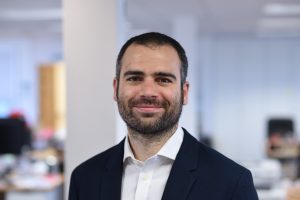
Dr Andrea De Luca is the co-founder and CEO of Flusso, a semiconductor company spun out of the University of Cambridge. Flusso has recently launched its FLS110 flow sensor as the world’s smallest flow sensor. The device has a footprint of just 3.5 mm by 3.5 mm and can be used to measure mass flow, volumetric flow, differential pressure or air velocity.
The FLS110 has been designed so that manufacturers can more easily incorporate reliable flow sensing into a wide variety of products. It uses a novel and flexible integration concept, and can accommodate a broad range of flow rates – from 0.001 to over 500 standard litres per minute – allowing the same component to be used across multiple applications.
The FLS110 can help with new healthcare device innovations, such as smart inhalers and fitness monitoring systems to improve people’s adherence to medications and monitor their health and wellbeing. It could be used also for active filter monitoring in vacuum cleaners, air-conditioning units and other consumer appliances to alert users if their filter was blocked and thus have appliances consuming less energy and offering a better user experience. The FLS110 could even be used in industrial applications such as boilers, gas sensors and pneumatic applications to improve energy efficiency, safety, and provide actionable information for predictive maintenance.
Flusso is currently going through a transitional stage, moving from product development to building its global volume sales. The company intends to bring two further product lines to market in the next couple of years, and to position itself as a leader in flow and gas sensing.
In 2020, Andrea was awarded the Royal Academy of Engineering’s Young Engineer of the Year award.
Dr. Giorgia Longobardi – CGD
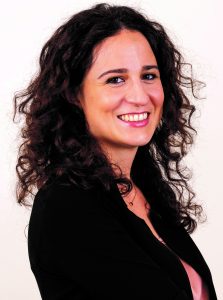
Dr. Giorgia Longobardi, CEO of CGD, is an experienced engineer with international practice working on GaN power devices design and characterisation. As the inventor of high impact patents in the field of GaN power devices, Giorgia made the unique blend of academic and business know-how one of her biggest strengths.
During her PhD in power devices at Cambridge University, Giorgia worked on international projects with top semiconductor companies, through which, she learned about different cultures operating in this field and gained experience managing and budgeting multi-partner projects. Before that, Giorgia led the GaN power devices team at the engineering department at Cambridge University.
As a result of her outstanding work, she received the RAEng Engineers Trust Young Engineer of the Year from the Royal Academy of Engineering in 2019; a distinguished award given to engineers in full-time higher education, research, or industrial employment who have demonstrated excellence in their early career stages.
Curious and knowledgeable, Giorgia leads an experienced team of passionate people working with enthusiasm and continuous drive to do things better. She never forgets why she founded CGD: to change how energy is used and protect the environment with efficient power electronics.
She is a member of the energy management committee at PSMA (power Sources manufacturers association) and Strategic Advisory Board at the Henry Royce Institute for materials.
Giorgia regularly supports initiatives in favour of the environment within and outside her working hours. She is an active and keen promoter of women in engineering and entrepreneurship, for which she gave several talks at high schools and universities around the world.
If there is someone you would like to add to the list, please email us directly.



